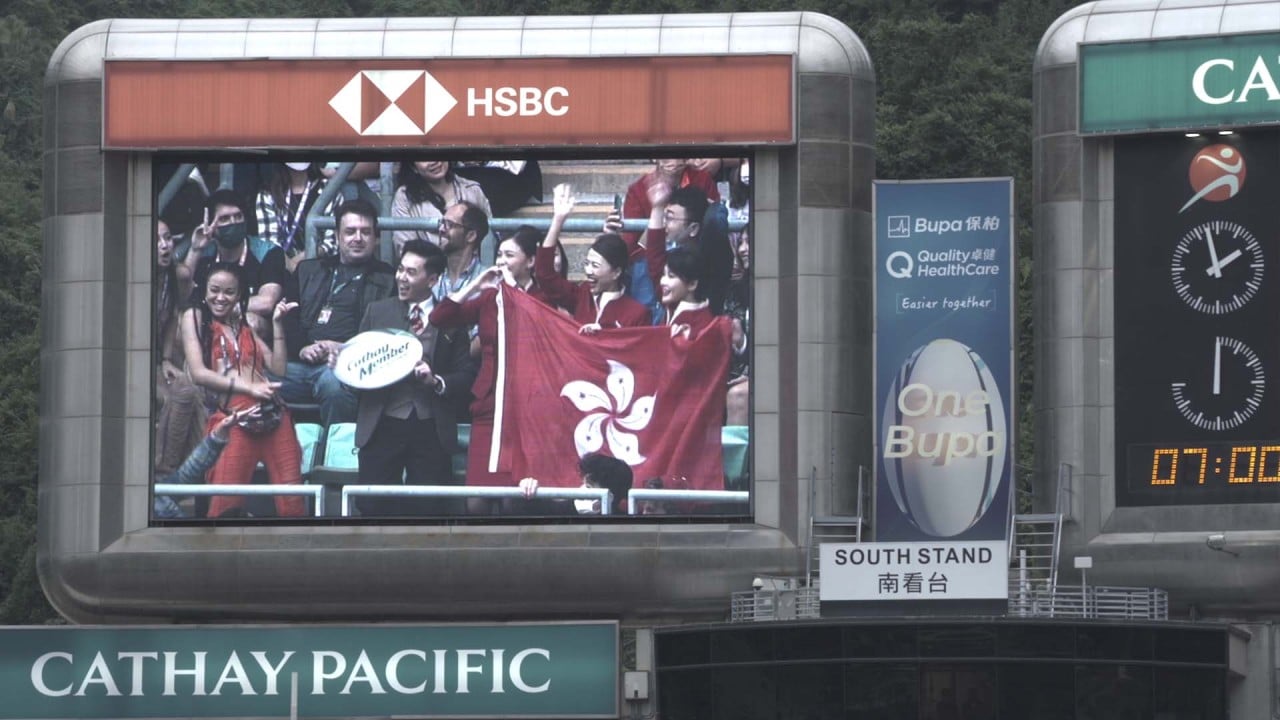
Behind the scenes at Hong Kong Sevens as insider tells of bear hugs, crying Fijians and a lost wheelchair
- Sean Moore came for his first Sevens in 1997, returned a year later to work in the tournament and now runs its marketing
- Ahead of the last edition at Hong Kong Stadium, he shares his favourite memories and some of the things people do not see
In more than a quarter of a century of working at the Hong Kong Sevens, one man has seen it all, from New Zealand’s memorable 2014 victory haka in torrential rain to the Beach Boys playing live.
Having travelled from the United States in 1997 to watch for the first time, Sean Moore fell in love with the event and the city. A year later he began working at the Sevens and now runs the tournament’s marketing, as managing director of Elite Sports Asia.
No one, then, is better placed to lift the lid on an event that has defined a city’s sporting character for almost 50 years.
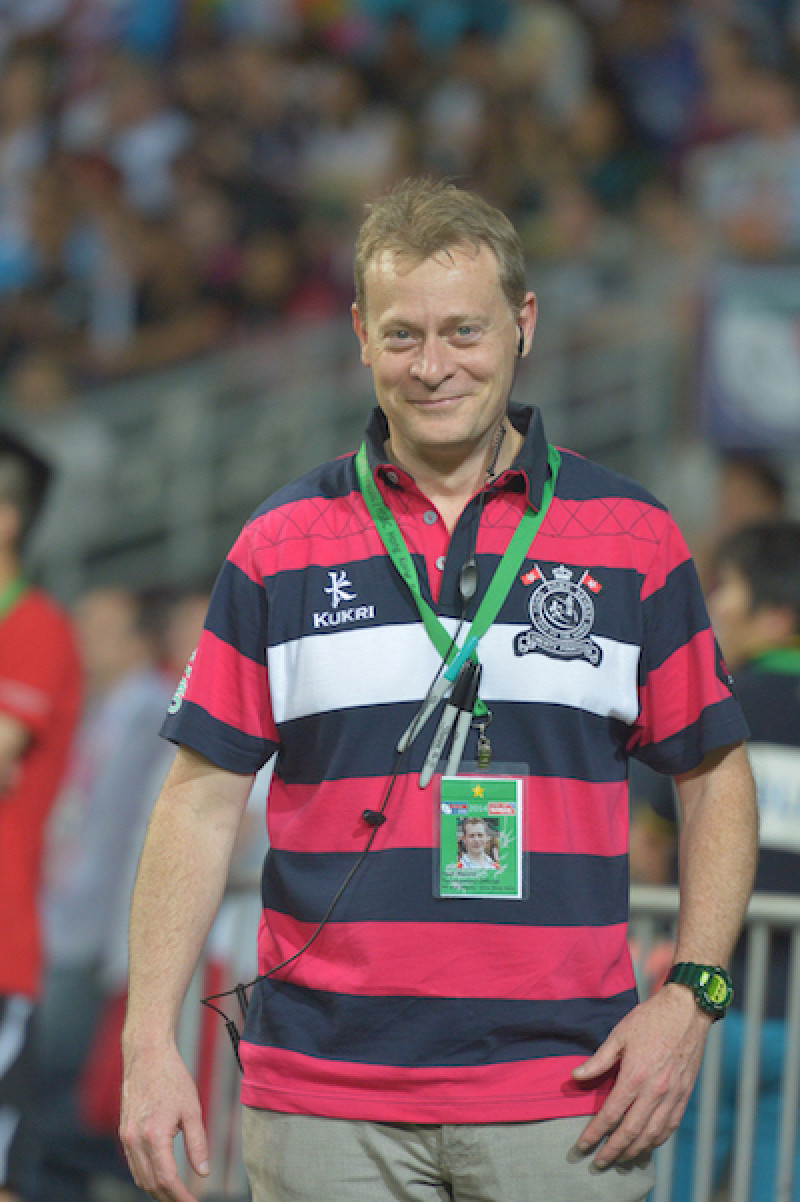
Ahead of the last tournament to be played at Hong Kong Stadium, the Post asked Moore to share some of his abiding memories, and what people do not see behind the scenes.
What was the first job you had at the Sevens?
PR flack, chasing teams for interviews, launching the world’s largest mooncake at the old Furama hotel – general dogsbody, really.
I have always had the less than envious job of trying to prod a praying and crying Fijian seven to go up and get their trophies before the broadcast cut away.
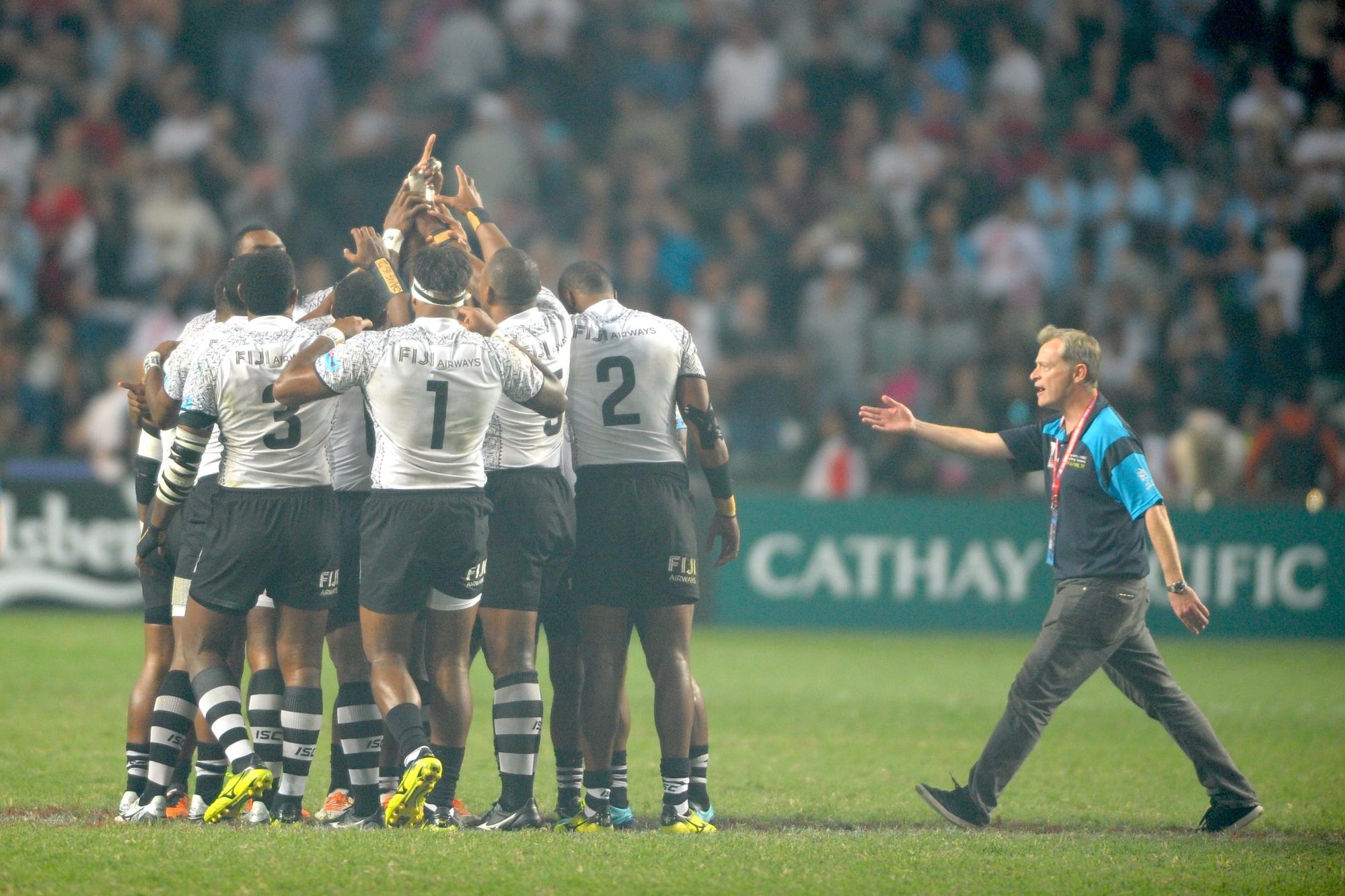
I would like to say that it has got much better since, but it was only a year or two ago I was cleaning the bench seconds before the final, after a player vomited all over it the game before. Paradoxically, this may be one of the most satisfying moments for me. The teams in the final had no idea! The show must go on.
When does planning start?
I will be taking notes as we go over the weekend. Planning for an event like this is a year-round process. You can never plan too early.
Favourite people to have worked with, met?
Too many, and this is really what keeps me going. I look forward to seeing people I haven’t seen in years, typically coming out of the throng. I think my takeaway memory of the 2022 Sevens (first since Covid-19) was the intensity of bear hugs. It showed how much people had missed us.
Some favourite Sevens faces, though: Jonah Lomu, David Campese, Waisale Serevi, Christian Cullen, Eric Rush, Chris Handy, Sean Fitzpatrick, Osea Kolinisau, Jean de Villiers, DJ Forbes, Brent Russell, Paul True, Sir Gordon Tietjens, Pat Lam, Brian Lima, Lorna Meads, Beth Coalter, Warrick Dent, Mike Friday, Keith Quinn, Graham Eden, and some of the world’s most incredible sports hacks.
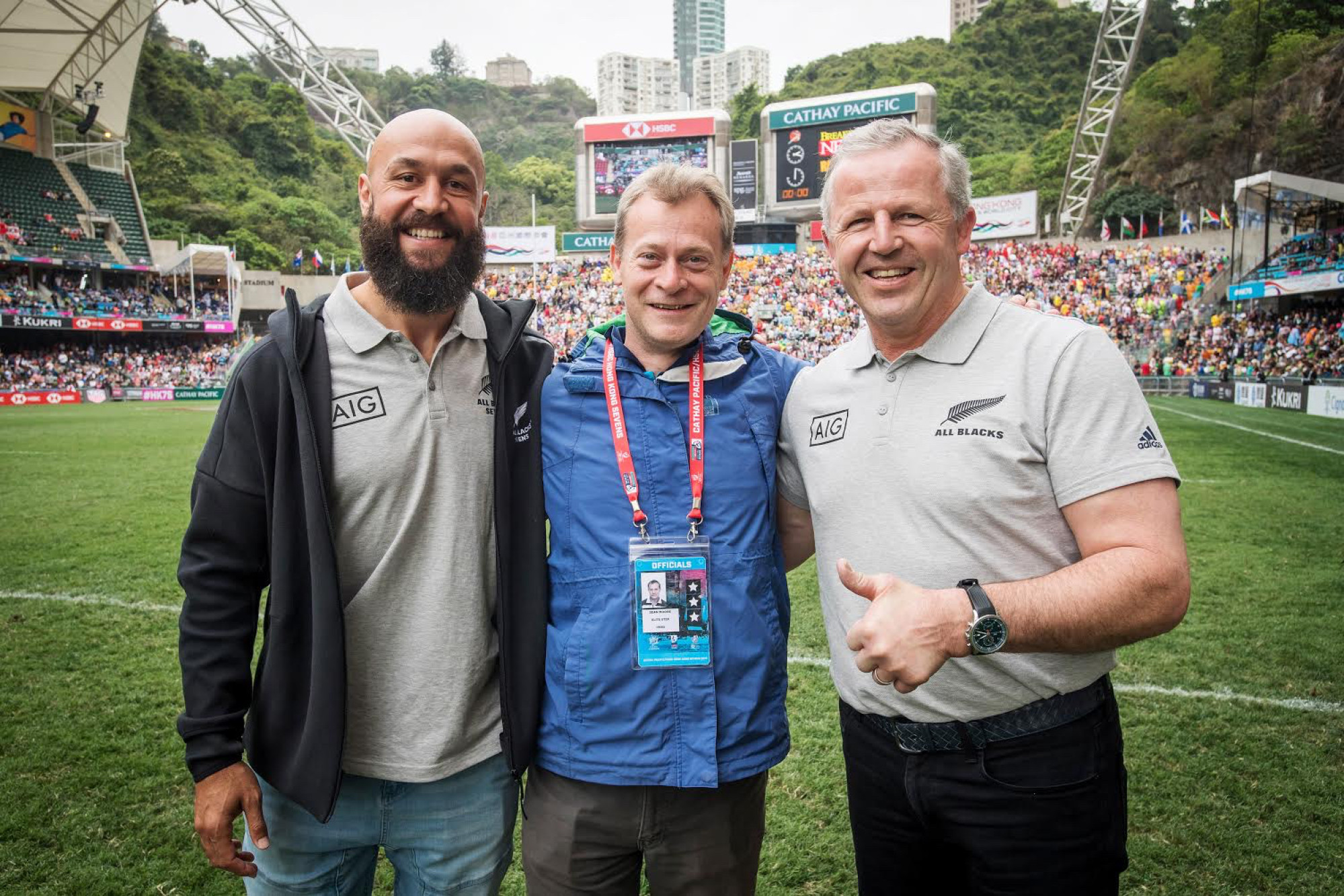
Any strange requests over the years?
There was one year I remember a Sunday night, hours after play, hunting around the stadium with [Hong Kong China Rugby CEO] Robbie McRobbie for someone’s wheelchair. I thought it was an April fool’s prank, but it was a legitimate mobility aid, not a costume or anything, and this gentleman somehow misplaced it. I still do not know how that can happen, but felt it best not to ask too many questions.
Which bands stand out?
Madness [2017 sevens]. They were a perfect fit.
But our “first” concert in the stadium was the Beach Boys, and we landed, with a lot of help from then Cathay CEO John Slosar, an act that had performed at Super Bowls and Live Aid and sold over 100 million albums worldwide.
The Saturday singalong was the perfect addition to the weekend and started a new trend.
Best try?
Daisuke Ohata’s length-of-the-field winning try against Scotland over two decades ago.

More than your run of the mill breakaway try … Ohata broke Scottish hearts with a length-of-pitch masterpiece, taking the ball from behind his try line and weaving through the entire Scots defence for the game-winner, and a Plate victory for Japan – their first since 1980.
Best memory?
Only the most dramatic finish to the tournament ever. A touch-and-go day [in 2014] with rain delays and ominous weather was spectacularly capped by biblical rains the moment New Zealand lifted the cup on the pitch.
That set the stage for possibly the best Haka ever and certainly the best in Hong Kong at least up until the double men’s and women’s celebration of 2023.
I remember people coming up to me saying how lucky we were to finish and that we needed a covered stadium, but I think that those who truly know the history of the Sevens understand that some of our most magical moments have been muddy marvellous.
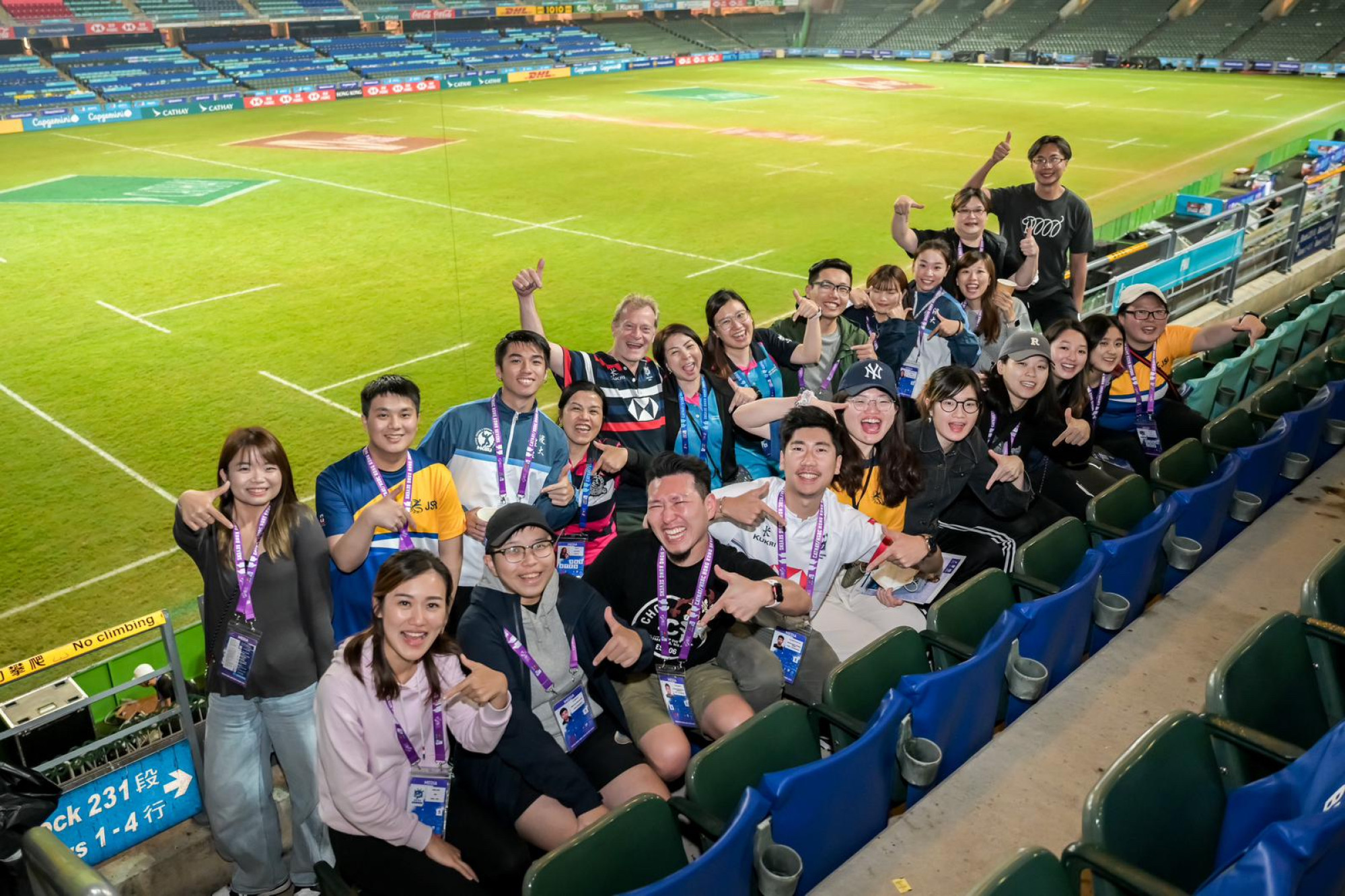
What do not people see that happens behind the scenes?
I think if people were able to see the tunnel and the locker rooms, they would understand why the new stadium is being built. It’s chock-a-block with players, medics, television broadcast compounds, refs, caterers, dancers, video analysts, drug-testing chaperones, team buses and 50-foot dragons – anything you can think of – and multiple teams share locker rooms, with 30 sides taking part.
Does the Sevens still have a place, given changes in the world game?
One thing I am most proud of about Hong Kong is the way we adapt and overcome, from being one of the world’s unique stand-alone sporting events to becoming a vital part of a global series in 1999, to our Sars and Covid resilience, and navigating changes in stadium.
Today, Hong Kong and sevens are synonymous.
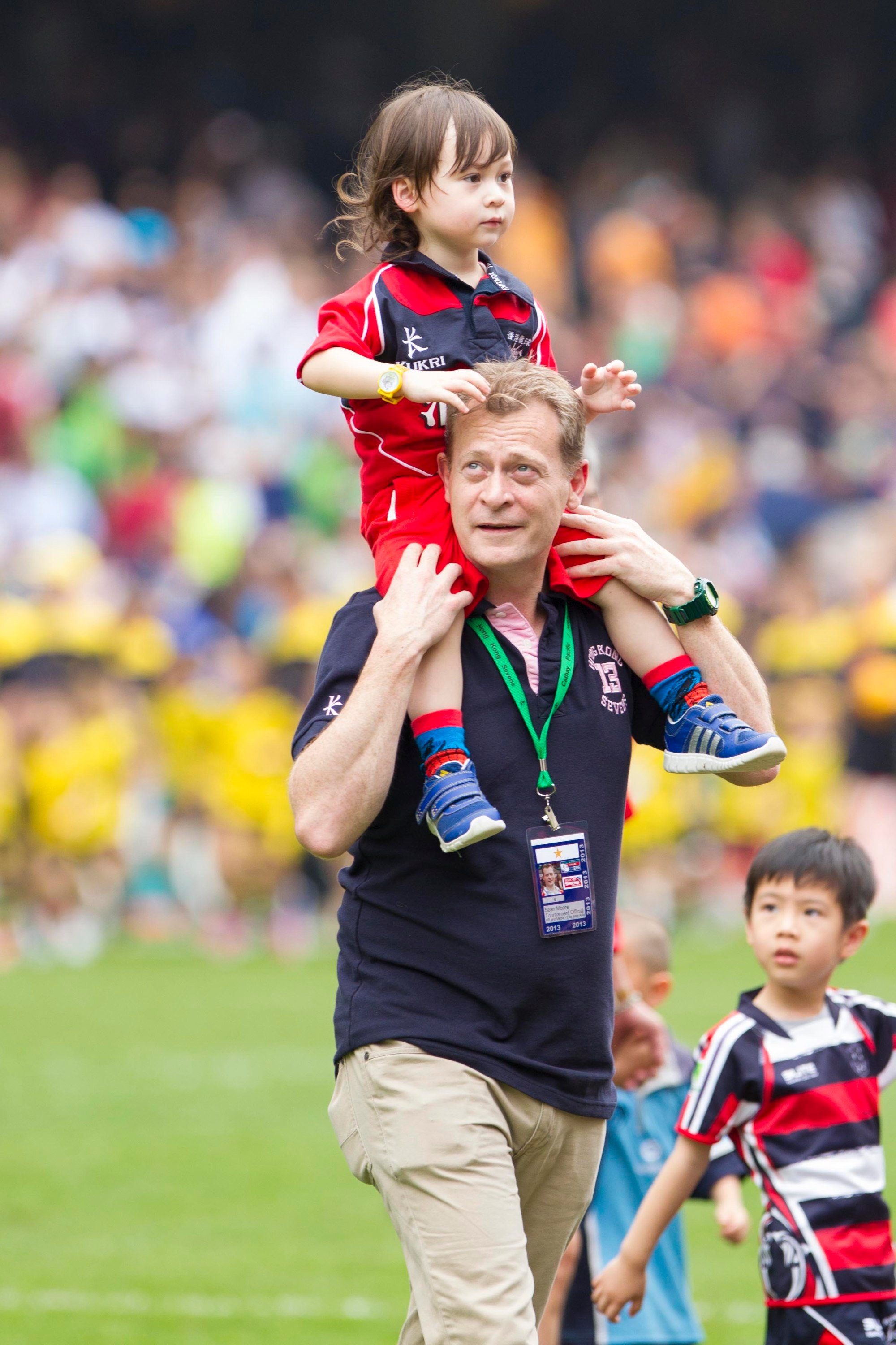
World Rugby should always want to make room for the Hong Kong Sevens, not just because it remains the showpiece of its series but because Hong Kong has everything the game needs: deep history yet also tremendous growth potential, given our access to the rest of China and Asia.
Things that are unique and authentic stay popular – like me.
There aren’t many arenas like the Hong Kong Stadium left in the world any more. The proximity of the fans to the players and vice versa is one of the hallmarks of the event.
It is likely to be the most important transition ever in the history of the event, with significant changes to the fans’ experience and commercial impact.


 - Mike Chan.jpeg?itok=EQbwYm3R&v=1669714688)
